Safeguarding and Protection in Health and Social Care
EduCare for Health: Health & Social Care
Care Providers and Healthcare organisations have duties to protect those who are in their care. The CQC regularly inspect providers to ensure they meet the fundamental standards of care and ask 5 key questions - are you safe, caring, effective, responsive and well-led?
Training plays a key part in helping organisations fulfil their legal and moral obligations to those who are vulnerable, and this package of courses from EduCare has been designed to do just that.
With up-to-date content written and reviewed by HSC professionals, EduCare for Health & Social Care is our comprehensive e-learning service that includes essential training for health and social care staff together with a robust reporting suite that evidences learning to inspectors.
The service contains core content that maps to both the Care Certificate* and the UK Core Skills Training Framework for health (CSTF) and will ensure staff are always up-to-date with
*Please note: The learning courses provide the underpinning knowledge of each subject, but individual 'on-the-job' competence needs to be observed.
Training courses
The following courses are all included within this service.
 500x707 (2)_500.jpg)
Child Neglect
This three-module interactive course is for anyone who works with children and young people in education settings up to the age of 25.
Read more_500.jpg)
An Introduction to Risk Assessment
An Introduction to Risk Assessment is a concise course that explains the techniques for assessing risk within your organisation.
Read moreChild Neglect
Course content
Module 1 Understanding neglect
- Introduction to the basic forms of neglect and examples of circumstances parents whose children are neglected may be experiencing.
- The prevalence of neglect in comparison to other types of maltreatment in the UK.
- The Assessment Framework to identify a child’s essential developmental needs, and what dimensions these cover.
- Children’s key developmental milestones.
- Identifying neglect in older children.
- Scenarios to illustrate that what you see is not always the truth.
- The impacts of what harm neglect can do; how it can affect and damage children in key developmental areas such as social, physical and emotional development.
Module 2 Why are children and young people neglected?
- The key components of effective parenting using the Assessment Framework model.
- Examples of factors that can make parenting neglectful, either intentionally or by omission.
- Examining practices which harm children and young people with disabilities.
- Information regarding children and young people who are especially vulnerable; such as young carers, and looked-after children and young people.
- Other risk factors; based on research focusing on mothers and fathers.
- Resilience and protective factors that can mitigate against risks that children and young people face.
- Scenario to consider how a child could be effected in a particular situation.
Module 3 Recognising and reporting child neglect
- The signs and indicators that should alert you to the possibility a child or young person is being neglected at different age-specific developmental milestones. Understanding what possible signs and indicators to look for in infants and toddlers, young children of school age, and adolescences.
- Parental neglect during adolescence and its possible consequences.
- Examining barriers to reporting and recognising neglect.
- Offering support; identifying when it is appropriate to talk to parents and how to start or encourage young people to have honest conversations.
Best practises for reporting neglect; information regarding organisations that can be contacted and universal principles that should be recorded within your own organisation.
An Introduction to Risk Assessment
This one module course delivers one CPD hour and comprehensively covers:
- techniques for assessing risk
- how to apply the techniques to protect your organisation
- identifying hazards and risks
- five steps to risk assessment
- the hierarchy of risk
- the processes for assessing risk
- documenting significant risks
_500.jpg)
Fire Safety
Fire Safety, written by expert authors and accredited by the Institute of Fire Safety Managers, provides the fundamental information needed to protect any premises against fire.
Read more
How to be an Effective Fire Warden or Fire Marshal
This course is aimed at employees who undertake additional fire safety roles and responsibilities in the form of fire marshals or fire wardens as part of their daily duties.
Read moreFire Safety
This four module course delivers four CPD hours and comprehensively covers:
- the importance of fire safety training including legislation
- the nature of the fire
- fire hazards
- what to do in the event of a fire
- how to use a fire extinguisher
How to be an Effective Fire Warden or Fire Marshal
This course covers:
- the importance of effective fire safety procedures
- the legal position and the requirement for effective safety management systems that demonstrate statutory compliance
- what should be included in a fire policy and procedure
- the systems required to ensure the safety of vulnerable people such as employees or visitors with disabilities

Food Hygiene and Safety
This Food Hygiene & Safety course is specifically designed for those who prepare and handle food.
Read more_500.jpg)
Safer Recruitment
This course on safer recruitment looks at what you need to do to safeguard children, young people and vulnerable adults from unsuitable people who might apply to join your organisation.
Read moreFood Hygiene and Safety
This four module course delivers five CPD hours and comprehensively covers:
- how bacteria can cause food-borne illness
- recognising high risk foods and food allergies
- contamination and food spoilages and how to control it
- effective hygiene
- the importance of storage
- HACCP and the law
Safer Recruitment
This four module course delivers four CPD hours and comprehensively covers:
- the four key stages of the recruitment process
- pre-recruitment planning and what must be in place before you advertise your post
- rejecting candidates and meeting the right ones
- obtaining the correct checks and references, including what's required from a DBS check
- post-recruitment activities, including observation and supervision.
_500.jpg)
The Prevent Duty
This course is designed to build your understanding of extremism and radicalisation, how people may be drawn into terrorism and what you should do if you have a concern.
Read more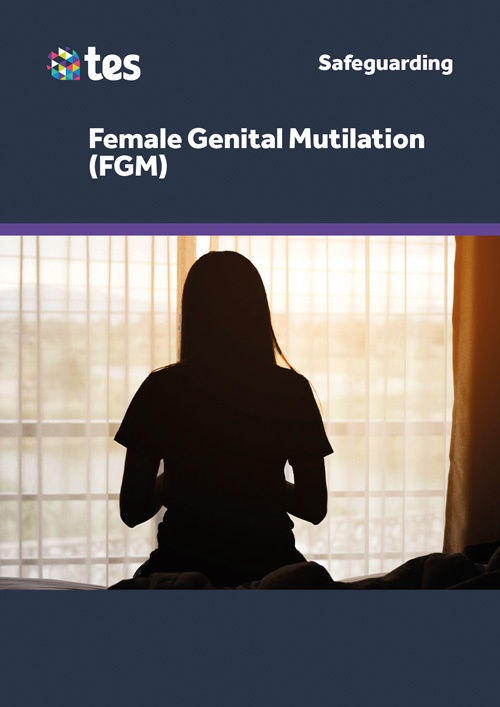
Female Genital Mutilation Awareness
This course will provide a thorough guide to help those working with young people spot the signs that Female Genital Mutilation (FGM) has taken place, or signs that it will take place.
Read moreThe Prevent Duty
This one module course delivers one CPD hour and comprehensively covers:
- what Prevent is
- what extremism and radicalisation are
- who may be vulnerable
- how people may be drawn into terrorism
- how messages are spread
- reporting concerns.
Female Genital Mutilation Awareness
This course covers:
- Understand what the law states regarding FGM and the mandatory reporting duty
- Learn the prevalence, consequences and different types of FGM
- Recognise the signs that FGM has taken place, or signs that a girl is at risk
- Learn the roles and responsibilities of professionals.
- Understand the importance of working together

An Introduction to Effective Teamwork
This course explores the different types of team and the stages of team development, as well as the roles individuals may take within a team.
Read more
An Introduction to Leadership
An Introduction to Leadership is a concise course that discusses the various types of leadership, whether leaders are born or made and practices common to leaders.
Read moreAn Introduction to Effective Teamwork
This one module course delivers one CPD hour and comprehensively covers:
- what is a team?
- how teams develop
- reviewing outcomes
- analysing team performance
- understanding team roles
- the advantages and disadvantages of large and small teams
An Introduction to Leadership
This one module course delivers one CPD hour and comprehensively covers:
- are leaders born or made?
- leadership styles
- the leader’s vision
- communication and employee satisfaction
- the leadership model

Raising Awareness of Honour-Based Abuse and Forced Marriage
Whilst growing up, a child may be taught that a set of behaviours are deemed to be honourable. If they display any dishonourable behaviours they may be abused by their family or members of their community as punishment. This course was written in partnership with Karma Nirvana, a national award-winning charity that supports both men and women affected by forced marriage and/or honour-based abuse.
Read more
Raising Awareness of Trafficking and Modern Slavery
The term modern slavery acknowledges the fact that millions of people are still held in conditions of slavery and servitude globally – including in the UK. This course raises awareness of this issue.
Read moreRaising Awareness of Honour-Based Abuse and Forced Marriage
The purpose of this course is to help you:
- understand what honour-based abuse is
- understand the difference between a forced marriage and arranged marriage
- understand the prevalence of this type of abuse
- understand which communities are affected
- recognise what laws exist to protect people
- be aware of early signs that might indicate abuse
- know what action to take if you know or suspect that a young person is at risk
- understand the motives and consequences of forced marriage
- know what support is available.
Raising Awareness of Trafficking and Modern Slavery
The purpose of this course is to help you understand:
- What modern slavery and trafficking are
- Different types of trafficking
- Who trafficking affects
- The Modern Slavery Act 2015
- Internal trafficking and county lines
- How to spot the signs of trafficking
- How to report concerns about a trafficked child or adult
_500.jpg)
Domestic Abuse: Children and Young People
Every day children and young people experience domestic abuse at home and can suffer a wide range of severe and long-lasting effects. The purpose of the course is to raise your awareness of children and young people who may be experiencing domestic abuse. Written in partnership with SafeLives, a national charity dedicated to ending domestic abuse.
Read more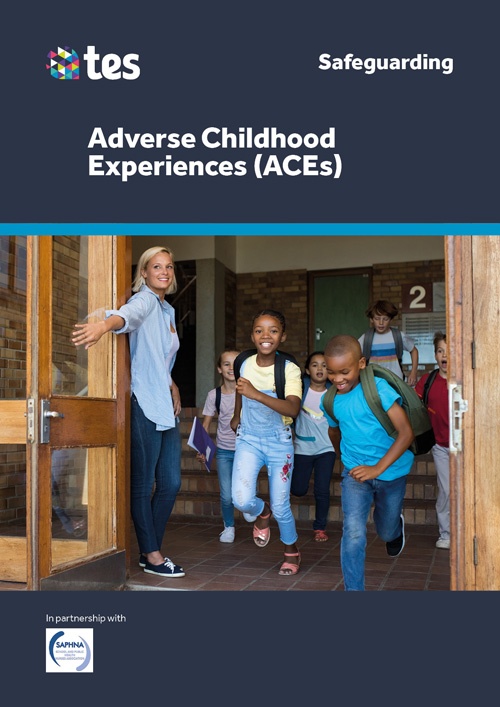
Adverse Childhood Experiences
The purpose of this course is to help you understand what adverse childhood experiences are and how they may affect children growing up. Using statistical evidence, the course also highlights the potential impact that ACEs can have in adulthood. Not everyone who has been exposed to ACEs will have negative outcomes, but understanding ACEs will help support the work and relationships you have with children.
Read moreDomestic Abuse: Children and Young People
The purpose of this course is to help you understand:
- What domestic abuse is and what forms it can take
- What controlling and coercive behaviour is
- The prevalence of domestic abuse
- They key risk factors to be aware of
- Some of the trigger events that can lead to violence
- The impact domestic violence can have
- What protective factors there are
- What to do when you suspect a child or young person is witnessing and/or experiencing domestic abuse
- What support, help and advice is available
Adverse Childhood Experiences
The purpose of the course is to help you:
- understand what ACEs are & the two main categories
- understand trauma including the concept of 'Fight, Flight or Freeze' mode
- understand the term toxic stress and its effects on the developing brains of children and adolescents
- understand attachment theory and the differences between secure and insecure attachment in children
- be aware of the potential negative impact (supported by statistics) that being exposed to ACEs
- understand what the protective factors are
- understand what children and young people who experience trauma need to enable them to cope
- improve your listening skills to help you understand the child’s perspective and offer them appropriate support
- understand resilience and how working with parents can help a child become more resilient
- understand what you can do to help break the cycle of ACEs when working with children and families.
The following courses can be bought as an addition to EduCare for Health & Social Care.

SEND Awareness Courses - Dyslexia, ADHD, Autism
Written in partnership with Connect, SEND Awareness includes three one-module courses designed to provide an overview of Autism, Dyslexia, and ADHD for those working in education.
Read more
Anti-Fraud, Bribery and Corruption
According to the National Crime Agency, fraud is the most commonly experienced crime in the UK. The impact isn’t simply a financial cost for big organisations; fraud has devastating physical, psychological and social effects on individuals, families and communities. By finding out more about fraud, bribery and corruption, you can help to reduce them, and keep yourself and your organisation safe.
Read moreSEND Awareness Courses - Dyslexia, ADHD, Autism
SEND Awareness contains three one-module courses, written in partnership with Connect.
- Autism Awareness - covers what autism is, its prevalence and causes, how it is diagnosed and the implications for pupil learning.
- Dyslexia Awareness - provides an overview of dyslexia and visual stress for those that work with children and young people.
- ADHD Awareness - covers the causes, prevalence, symptoms and diagnosis through to treatment and how to support children with ADHD.
Anti-Fraud, Bribery and Corruption
Anti-Fraud, Bribery and Corruption
This one-module, CPD-acredited course covers:
- What fraud, bribery and corruption are, and what form they can take
- Being aware of the increased risk factors in organisations and industries
- Examples of common types of fraudulent activities
- The prevention and detection measures everyone must take
- How to report a suspected fraud
- Scenario examples of fraud, bribery and corruption
- Further information on the organisations you can contact for help and advice

Cyber Security
Fraud and cyber-crime are the country’s most common offences and the biggest threat to national security. Many organisations become victims of cyber-crime because of human error, just not thinking or people not following the correct protocol. This course will help you understand the best practice to minimise the risk of a cyber-attack.
Read moreCyber Security
Cyber Security
This one-module, CPD-acredited course covers:
- Risk in the online world
- Understanding what a cyber attack is
- Understanding what information needs protection
- The effects of cyber-crime
- Understanding the types of cyber-attack
- Understanding the cyber security policies your organisation should have in place
- The steps you can take to minimise the risk of a cyber-attack
- Guidance on the detection and reporting of cyber-crime
- Information on the support available
Benefits of training with EduCare
Compliance
Ensures staff are always up-to-date on
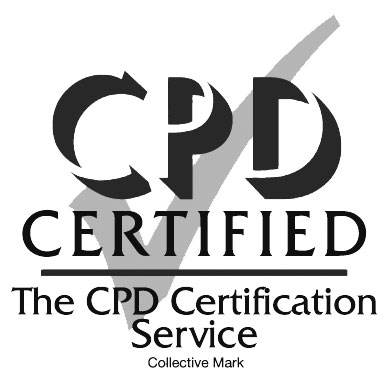
Verified for CPD
All courses provide a learner with CPD hours.
Progress Monitoring
Monitor learner progress with powerful management reports.
Full Coverage
Cascades good practice to all staff who may be in different locations with varying work patterns by providing clear, consistent learning.
Certification
Personalised, downloadable certificates upon successful completion of a course.
24-7 Access
Delivered online and can

Peace of mind
Training will be regularly updated as standards are introduced or modified.

Cost effective
No groups size to worry about, no travel cost, no downtime.

Easy-to-understand
Bite-sized learning, communicating essential key points.

Stress free
Courses are automatically updated when legislation changes
Our learning platform
All our courses, certificates and reports are accessed via our online Learning Platform which has been designed to be clean, simple and easy to use.
How to buy
Circles of excellence
We work with a wide range of subject experts, who play a key role in contributing to, reviewing, and endorsing our training. This ensures our courses are always accurate, up-to-date and of the highest quality. We also work with many of our key customers to ensure our training continually meets the needs of their sector.
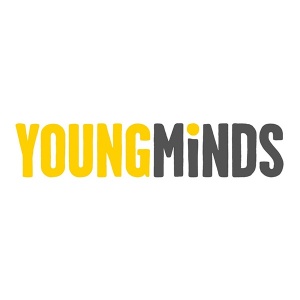
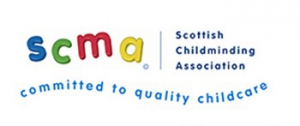

_300.png)
